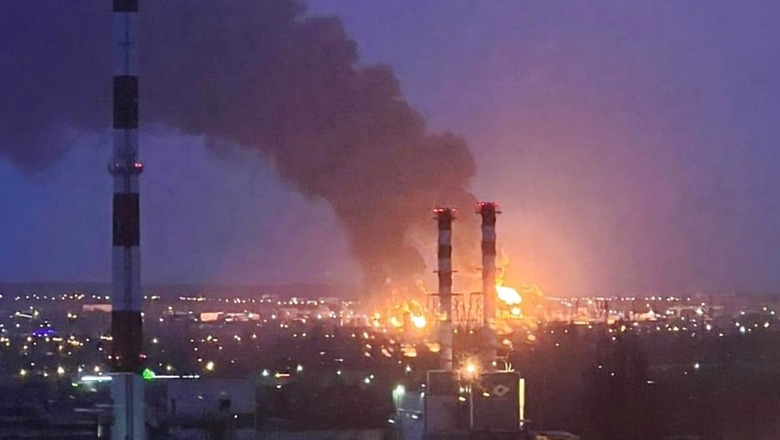
views
A tanker loaded with 1 million barrels of Russian oil set sail from Murmansk this month, headed for Philadelphia. Then, in the middle of the Atlantic, it did an abrupt U-turn.
The ship, Beijing Spirit, had apparently lost the buyer for its oil. It removed “Philadelphia” as its listed destination, according to the global maritime data provider MarineTraffic, and listed its new destination as “For Orders,” which indicates that the oil on board is for sale. The tanker then veered back toward Europe before spending several days bouncing round the Mediterranean, “presumably hoping to offload in more ‘friendly’ territory,” said John van Schaik, an oil industry expert at the energy information company Energy Intelligence.
The meandering journey offers a glimpse into the tumult that has roiled the trade in oil, Russia’s most lucrative export, as the United States, Canada, Britain and Australia move to ban imports of Russian oil because of Russia’s invasion of Ukraine.
Overall, more than 20 tankers that have departed from Russian ports since the invasion — together carrying almost 8.5 million barrels of oil — now list their status as “For Orders” or “Drifting,” which indicates a lack of destination, according to the Russian Tanker Tracking Group, an initiative led by the Ukraine government to observe Russian oil sales. Other tankers now list final destinations like “ZZZ.”
Van Schaik said it was uncommon to see so many tankers sailing under “for orders” status, and it likely had to do with the U.S. ban on Russian imports combined with self-sanctioning among oil companies.
But in fact, Russia — the world’s third largest oil producer behind the United States and Saudi Arabia — is still exporting plenty of oil.
Some countries, like India, Singapore and Turkey, have sharply increased their receipts of Russian oil in the weeks since the invasion, according to a separate tally by a Ukraine-led effort to investigate the companies and countries that continue to buy and sell Russian oil and gas. And the European Union has been unable to agree on an oil embargo among concerns that such a move would push economies into recession, though Germany has said it intends to phase out Russian oil imports by the end of the year.
Hiroko Tabuchi and Blacki [email protected] The New York Times Company
Read the Latest News and Breaking News here




















Comments
0 comment